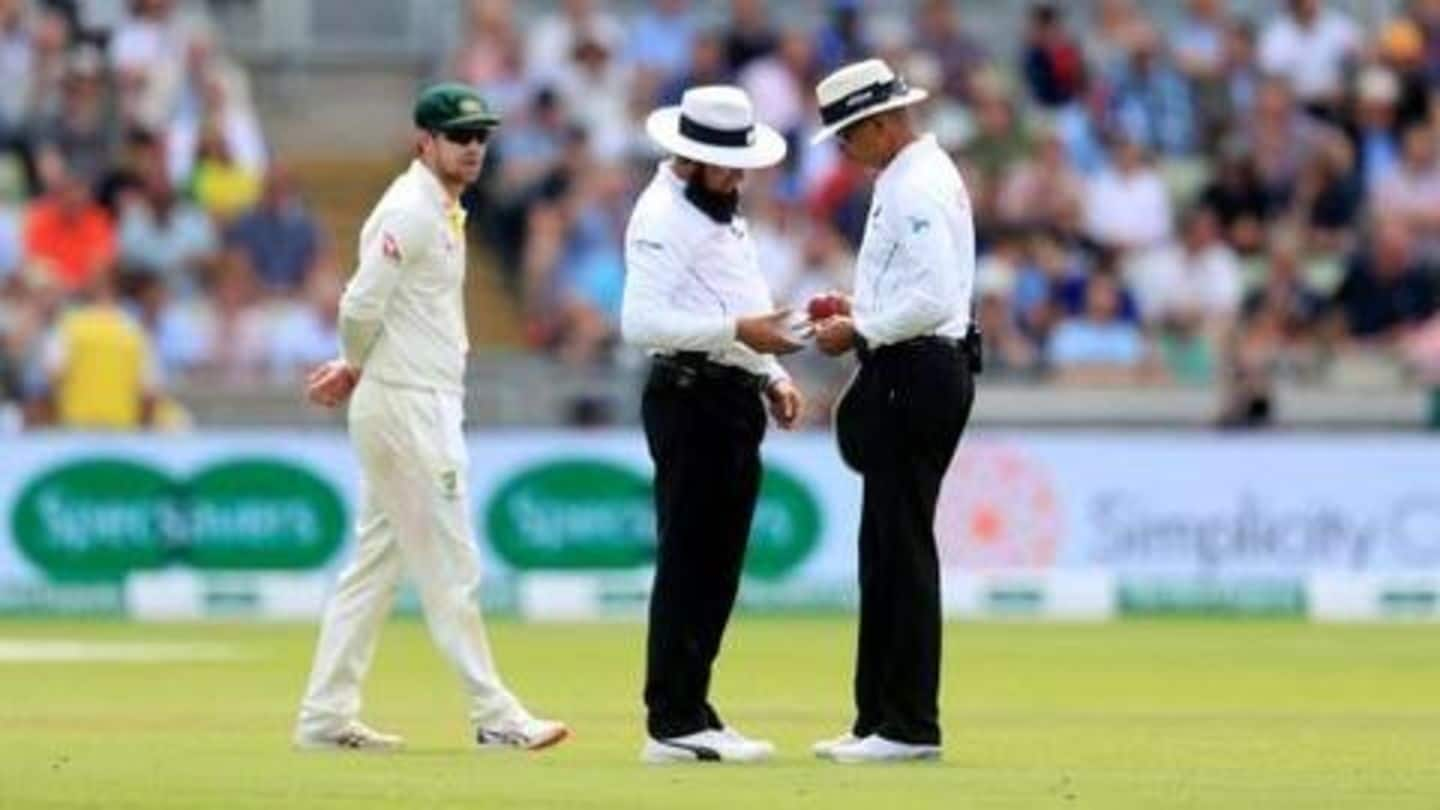
#NewsBytesExplainer: Why is ICC considering to legalize ball-tampering?
What's the story
According to a recent ESPNcricinfo report, the International Cricket Council (ICC) is planning to legalize ball-tampering.
Reportedly, the players may use artificial substances in order to shine the cricket ball under umpires' supervision.
Implementing this rule could prevent the players from applying saliva or sweat on the ball in the wake of coronavirus pandemic.
Let us analyse the ramifications of legalizing ball-tampering.
Ball
Shining one side of ball gives rise to reverse swing
In Test cricket, maintaining the ball becomes necessary as the match progresses.
Shining one side of ball of vigorously helps in producing reverse swing later on.
The other side needs to be completely rough.
However, in ODI cricket, the chances of bringing reverse swing into play are less due to usage of two balls through the course of an innings.
Methods
Players use saliva and sweat to shine the ball
Not only the bowler, the fielders inside the ring are involved in maintaining the ball's shine throughout.
They usually do it by using saliva or body sweat.
However, an ICC medical committee has raised concerns over the conventional methods, terming them unhygienic.
As a result, ICC may allow players to shine the ball with an artificial substance.
Quote
The report hints at possibility of an artificial substance
"The authorities are open to the option of allowing an agreed artificial substance to polish the ball under the supervision of the umpires - in the fashion they currently allow the ball to be cleaned by players under supervision," a report in ESPNcricinfo stated.
Substance
Will applying an artificial substance be effective?
The committee understands the importance of reverse swing in Test cricket.
Hence, they are open to the idea of using an agreed artificial substance to make up for bowlers.
Notwithstanding, the results may not be fruitful as compared to conventional ways of polishing the ball.
Also, the decision-makers will have to be a bit flexible as far as the cricket laws are concerned.
Information
What does the Law state?
As per 41.3.2, it is an offence for any player to take any action which changes the condition of the ball. Except in carrying out his/her normal duties, a batsman is not allowed to wilfully damage the ball.
Views
Cricketers slam the recent idea
Former Indian bowlers Harbhajan Singh and Ashish Nehra completely oppose the newly discussed method.
"The ball will not swing if you don't apply sweat or saliva. Vaseline is lighter and doesn't even ensure conventional swing. It doesn't make the ball heavy," said Nehra.
"Taking saliva out of the equation means taking swing out which may not be a good idea," Harbhajan added.
Contradiciton
The artificial substance could work in reverse
Although the introduction of artificial substance could relieve the bowlers, there is a flip side to it.
The ball could also start reversing much earlier in the match with its use, making life difficult for batsmen.
In past, mints or lollies have been widely used for this.
ICC will have to impose stern limitations for the fielding side if ball-tampering gets legalized.